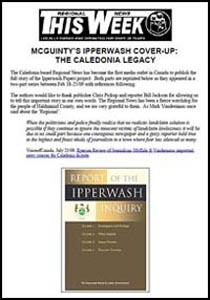teamwork, 1. a process whereby higher-paid employees destroy morale and create mediocre results by forcing creative, forward-thinking subordinates to submit to a group’s need for consensus. 2. a corporate culture whereby workers are discouraged from drawing attention to and/or correcting the mistakes of favoured co-workers no matter how obvious those mistakes may be. 3. Euphemism for mediocrity. (see also, team-player)
 team-player, 1. an employee, generally of lower rank or popularity who, despite their ability to produce superior results, reluctantly allows others to degrade their ideas in order to avoid employment-threatening conflict. 2. an employee who, having taken on an excessive work burden in order to compensate for lazy, incompetent and disinterested project co-workers, is forced to share credit for the project’s results with those same employees. (see also, teamwork)
team-player, 1. an employee, generally of lower rank or popularity who, despite their ability to produce superior results, reluctantly allows others to degrade their ideas in order to avoid employment-threatening conflict. 2. an employee who, having taken on an excessive work burden in order to compensate for lazy, incompetent and disinterested project co-workers, is forced to share credit for the project’s results with those same employees. (see also, teamwork)
=======================
Origins: I have mixed feelings about these definitions. Too often – in my life, at least – the word, ‘teamwork,’ represented frustration and mediocrity. Yet, one of the great successes in my life resulted from assembling a volunteer team of the best real estate experts I could find in order to create a step-by-step, quality assurance system for first time home buyers. I am now turning this ‘unique process’ into a program that I can sell to other real estate pros. Teamwork is the foundation of that program.
I recall an interesting exercise at Mohawk College that demonstrated the potential for teamwork at its best. We were divided into groups and given a winter ‘survival’ scenario in which we were lost in the woods with limited resources. We then had to individually decide on the best course of action and record our answers. Afterwards, we were required to decide as a group what should be done. In the end, all of us were surprised to discover that the group’s solution was dramatically closer to the correct answer than any one of our individual solutions.
One should keep in mind that this exercise, however illustrative it may have been, was purely an intellectual one that lasted only a short period of time and did not test the personalities of the group in a real emergency, or in a long-term office project setting.
I believe that teams work best when…
-
One person is in charge of creating and leading the team. Someone has to be the ‘guardian’ or ‘advocate’ for the vision.
-
The team creator is free to choose the best people for the team.
-
Team members can ‘hire or fire’ members not pulling their weight.
-
The team can decide, subject to management input, what problem or project it should be focused on. I watched this freedom put to efficient use while working in the product support division of a large defence contractor. The supervisor did not assign workers to a specific project; he allowed all workers to determine for themselves where they were most needed. It worked phenomenally well. Workers would move from vehicle to vehicle as required, some choosing to specialize in the same job, others choosing to vary their tasks. This supervisor trusted his people, and they rewarded him with loyalty for not trying to micro-manage them.
-
 In an ideal situation, a company would consist mainly of self-organized teams that would be hiring and firing their own members within the company. Effective teams would be in demand by employees; ineffective teams would become effective or be eliminated.
In an ideal situation, a company would consist mainly of self-organized teams that would be hiring and firing their own members within the company. Effective teams would be in demand by employees; ineffective teams would become effective or be eliminated. -
There has to be some kind of accountability or reward for results whether is is monetary compensation or enhanced prestige within the company – preferably both.
-
The team will function best when all members are allowed to contribute their own ‘Unique Ability’ rather than being pigeon-holed into a role based on a job-description. I know one receptionist who worked for a travel agency and eventually left to become a new home salesperson, and the owner of a house cleaning business. Why wasn’t there a place in the company for her that would fairly reward her entrepreneurial abilities?The concept of ‘Unique Ability’ was developed by Dan Sullivan, founder of the Strategic Coach in Toronto, Ontario. It is based on the idea that all of us have a collection of habits, gifts and abilities that combine to produce a unique human being capable of obtaining extraordinary results. The goal of entrepreneurs should be to spend the majority of time working within their Unique Ability while delegating all other tasks to others who are, in turn, working within their own Unique Abilities.
For those who are interested in learning more about this life-altering concept, I suggest that you order the book, Unique Ability from the Strategic Coach store. It’s a little expensive at $40 CAD, but it could be the best money you ever invested in yourself.
Mark Vandermaas
Other entries in Mark’s Subversive Dictionary:

















